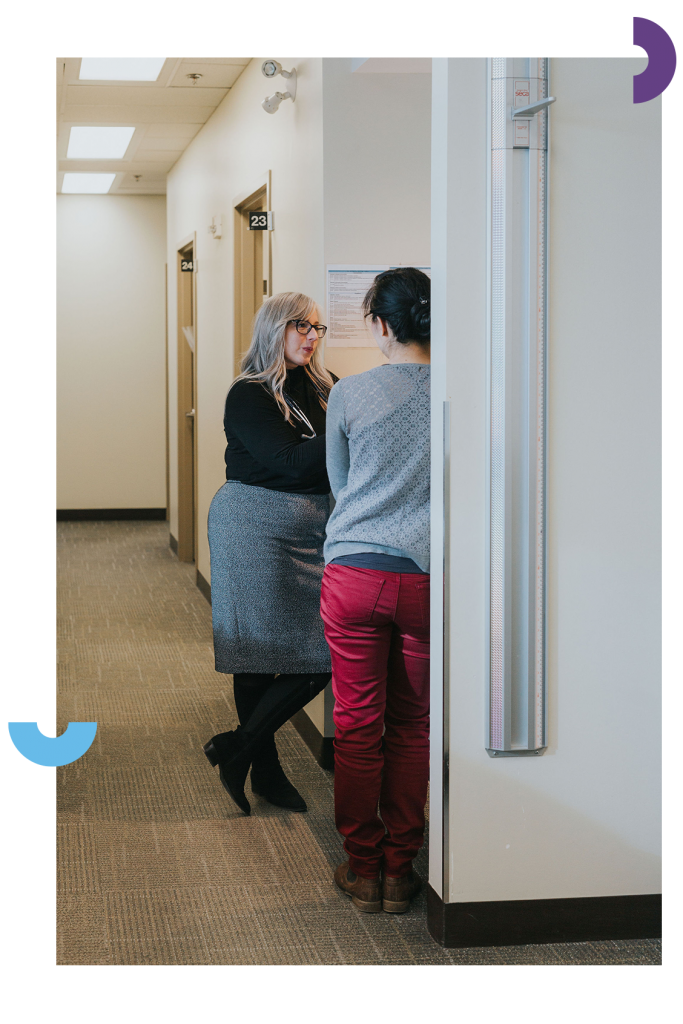What is a chaperone?
Chaperones work with physicians to observe examinations and/or procedures. Their presence helps support and protect both the patient and the physician.
When a chaperone condition is placed on a practice permit, anyone performing chaperone duties must be approved by CPSA.
Chaperone training
MacEwan University
MacEwan University and CPSA partnered up to offer medical chaperone training to physician office staff. This interactive, self-paced workshop uses scenario-based learning to help you understand appropriate procedures and identify improper behaviour in patient care settings. You’ll learn best practices that you can apply immediately to your work environment. This course is self-paced and has no instructor. Students have one month to complete the approximately four-hour-long course.
PBI Education
In partnership with the University of California, Irvine, School of Medicine, PBI Education offers a number of accredited courses for clinicians, including a Medical Chaperone Training Program. This self-paced, online course combines readings, scenario-based activities and knowledge checks to ensure chaperones have the skills required to be effective and valued members of a healthcare team.

FAQs about chaperones
To see more FAQs for Physicians, click on All FAQs and filter by "Physicians"
All FAQsWhat is a chaperone?
Chaperones are independent, appropriately trained individuals who work with physicians to observe examinations and/or procedures. Their presence helps support and protect both the patient and the physician.
What are the roles and responsibilities of a chaperone?
- Developing an office policy regarding chaperones
- Ensure staff and patients understand and have access to it
- Proper implementation of policy
- Comply with CPSA’s Standards of Practice
- Communicate clearly and in plain language
- Explain why the sensitive exam is necessary, obtain informed consent, explain as you go and end by asking if there are any questions























